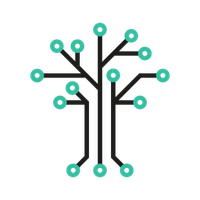Criteria for safe and sustainable software
- Open Source
- The best way to check how secure your data is against unauthorised access is to use open source software.
- Virtual Private Network
- This is usually the basis for accessing a company network from outside. However, do not blindly trust the often false promises of VPN providers, but use open source programmes such as OpenVPN or WireGuard.
- Remote desktop software
- Remotely is a good open source alternative to TeamViewer or AnyDesk.
- Configuration
Even with open-source software, check whether the default settings are really privacy-friendly:
For example, Jitsi Meet creates external connections to gravatar.com and logs far too much information with the INFO logging level. Previous Jitsi apps also tied in the trackers Google CrashLytics, Google Firebase Analytics and Amplitude. Run your own STUN servers if possible, otherwise meet-jit-si-turnrelay.jitsi.net is used.
- Encryption methods
Here you should distinguish between transport encryption – ideally end-to-end – and encryption of stored data.
The synchronisation software Syncthing, for example, uses both TLS and Perfect Forward Secrecy to protect communication.
You should be informed if the fingerprint of a key changes.
- Metadata
- Make sure that communication software avoids or at least protects metadata; it can tell a lot about users’ lives.
- Audits
- Even the security risks of open source software can only be detected by experts. Use software that has successfully passed a security audit.
- Tracker
Smartphone apps often integrate a lot of trackers that pass on data to third parties such as Google or Facebook without the user’s knowledge. εxodus Privacy is a website that analyses Android apps and shows which trackers are included in an app.
It also checks whether the permissions requested by an app fit the intended use. For example, it is incomprehensible why messengers such as Signal, Telegram and WhatsApp compulsorily require the entry of one’s own telephone number.
- Malvertising
Avoid apps that embed advertising and thus pose the risk of malicious code advertising. Furthermore, tracking companies can evaluate and market the activities of users via embedded advertising.
There are numerous tools such as uBlock Origin for Firefox, Blokada for Android and iOS or AdGuard Pro for iOS that prevent the delivery of advertising and the leakage of personal data. With HttpCanary for Android apps and Charles Proxy for iOS apps, users can investigate for themselves how apps behave unless the app developers resort to certificate pinning. Burp Suite intercepts much more than just data packets and can also bypass certificate pinning.
- Decentralised data storage
- It is safest if data is stored decentrally. If this is not possible, federated systems, such as email infrastructure, are preferable to centralised ones.
- Financial transparency
- If there are companies behind open source software, they should be transparent about their finances and financial interests in the software. A good example in this respect is Delta Chat.
- Availability
- If an Android app is available, for example, only via Google's Play Store or also via the more privacy-friendly F-Droid Store.
- Data economy
- When selecting software, check not only whether it meets all functional requirements, but also whether it stores only the necessary data.
- Data synchronisation
- Data from a software should be able to be synchronised between multiple devices without the need for a central server to mediate it. For example, we sync our KeePass database directly between our devices using Syncthing and not via WebDAV or Nextcloud. This means that password data is not cached anywhere, but only stored where it is needed.
- Backup
- To ensure that all relevant data is securely available for the entire period of use, backup copies should be made. These should be stored in a safe place that is also legally permissible. The backup should also be automatic and the backups should be encrypted.

